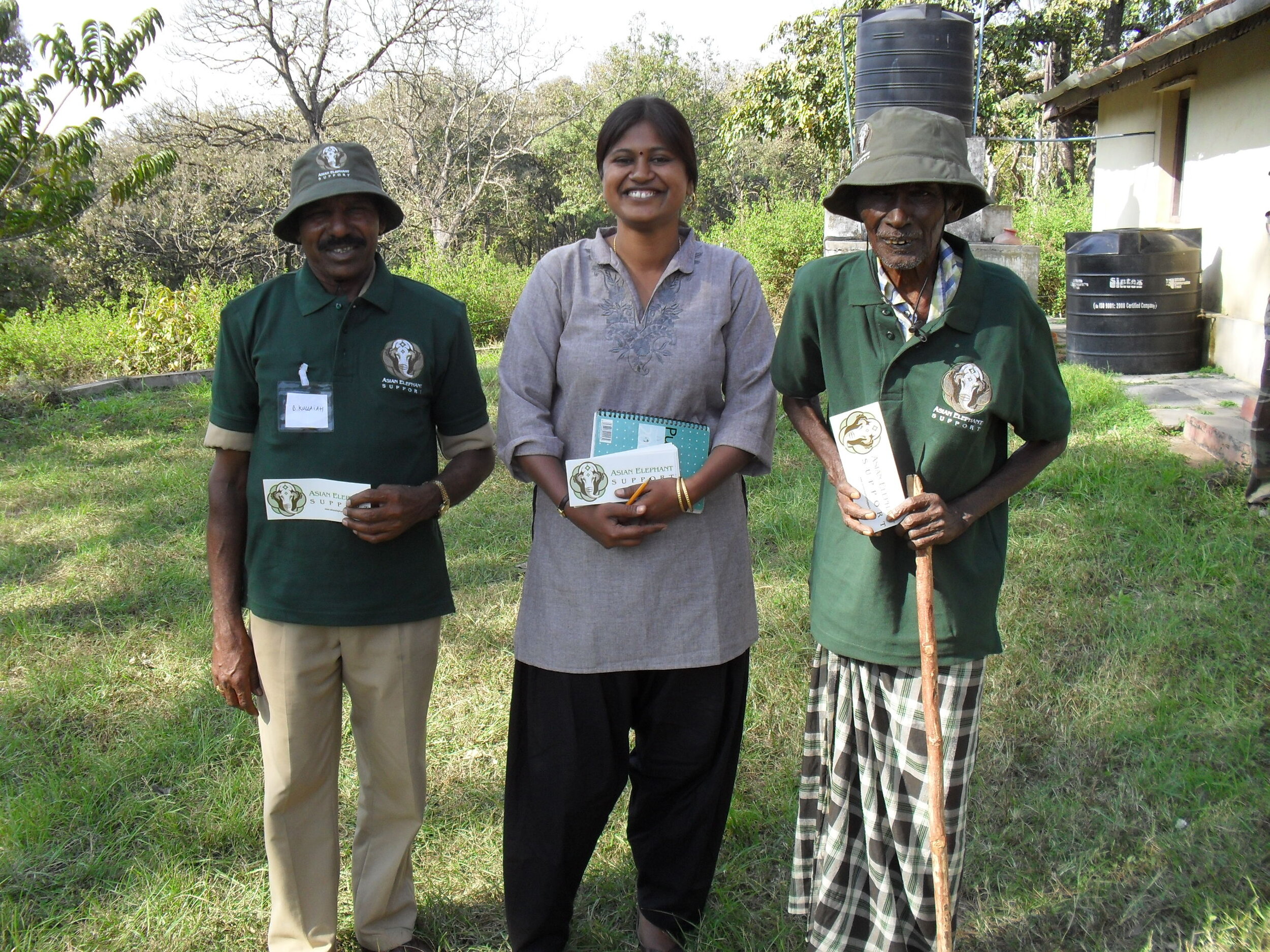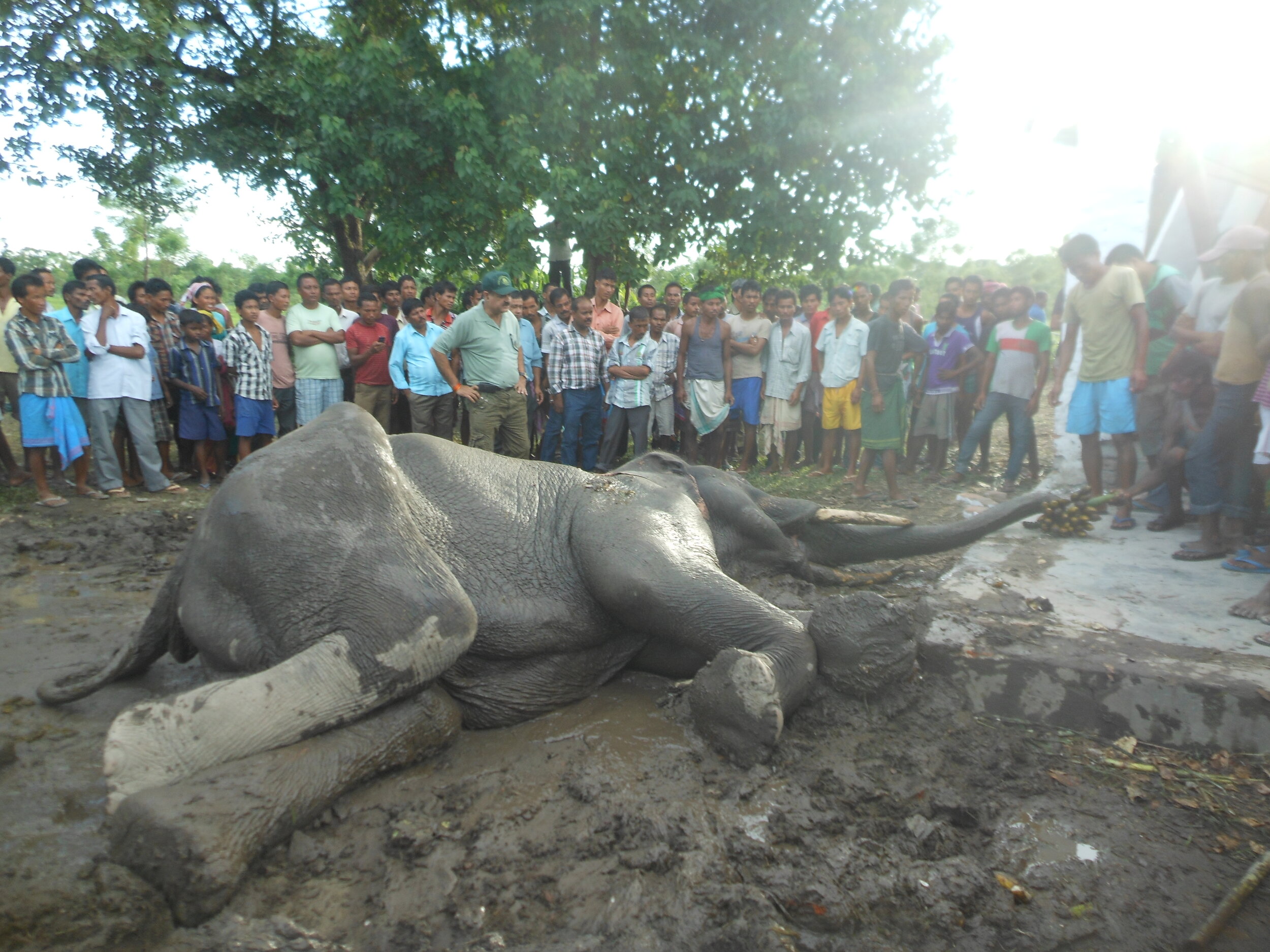During Asian Elephant Awareness Month 2020 AES sent out an eBlast highlighting some of its work in India:
We at AES have TONS of LOVE for Asian elephants and the people who work with and live among them in their native ranges.
Today we are highlighting some of AES partnerships in India over the years. India is big; they have the largest Asian elephant population, so there are many opportunities to help. Some of our earliest work in India began a good decade ago and continues today.
In 2010 we received a grant from USWFS to study emerging diseases in elephants with Drs. Arun Zachariah and N. Kalavanan, and during this work, Dr. Zachariah was able to confirm a case of EEHV (elephant herpes) during the necropsy of a wild elephant calf. It is very difficult to be able to do a good necropsy in the wild as often a corpse is badly deteriorated before being discovered. This was a very important finding.
Mamatha Sathyanarayana is a college teacher who understands the losses suffered both by her fellow citizens and Asian elephants as human-elephant-conflict continues to escalate causing losses of crops and lives, both human and elephant. She teaches co-existence of people and pachyderms through her classroom and workshops for local village children. As the traditional way of living with elephants as a mahout is disappearing, she saw urgency to record this hand on knowledge for all to use.
Today, she is still holding workshops to educate students and the public about their national heritage, the Asian elephant, and now some of her mahout students are comfortable joining her and helping her audiences understand their concerns and caring for this magnificent animal. In 2019, AES funded Mamatha’s trip to Denver, CO, to speak at the Elephant Managers Association conference. Her presentation to U.S. elephant keepers, sharing her knowledge of mahouts’ husbandry and caring proved exceptionally interesting and educational to this audience. And her visit to Denver Zoo’s elephant facilities was equally educational and interesting to her.
AES has also funded some of Dr. Kushal Sarma’s elephant health clinics. A professor at the Guwahati University Veterinary School, its location to Kaziranga National Park where a population of privately owned elephants is engaged in the tourist industry, has kept Dr. Sarma busy on his weekends and holidays caring for these elephants. One remarkable incident was a call he received from a tea plantation advising an adult bull elephant had been electrocuted by their power lines but was still alive. Dr. Sarma gave instructions until he could get to the location. Once there, lots of fluids and medicines, then a back hoe to help the bull back on his feet, and one very fortunate elephant headed to where a herd was waiting nearby.
We have helped the Wildlife Trust of India when they monitor elephants’ health at annual Sonepur Mela gatherings, field researchers implementing new automated methods of protecting village people and reducing human-elephant-conflict, a technical workshop to reduce elephant-train accidents, and so much more.




